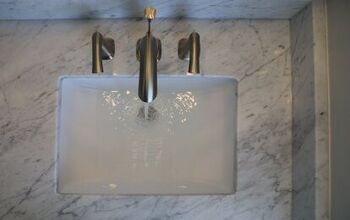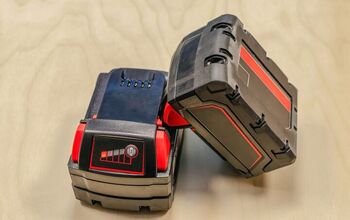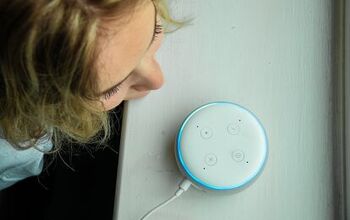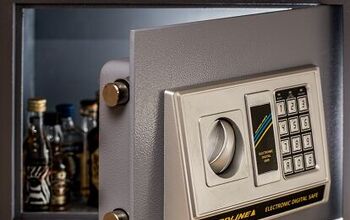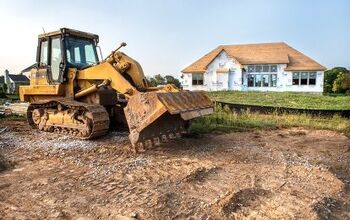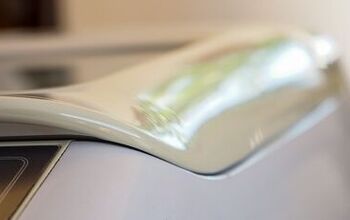The Hidden Costs Of Clutter: How Too Much Stuff Undermines Your Budget

Are you trying to convince yourself that your overflowing closets and cluttered countertops aren’t a big deal? You might tell yourself the mess doesn’t bother you, until you really start thinking about what it’s costing you. That’s right. Those piles of clutter are eating away at your budget, not to mention your mental and emotional well-being.
Clutter leads to unnecessary spending, raises maintenance costs, and can even contribute to higher health bills. Storage fees, reduced productivity resulting in lost income, and a lower resale value on your home are other possible money-related issues. Paring down clutter can help you take back control of your budget and overall financial picture.
Clutter takes its toll on you, contributing to stress, limiting your enjoyment of your home, and hindering your financial goals. By recognizing the hidden costs of clutter, you can take steps to simplify your life and free up resources for what truly matters.
How Having Too Much Stuff Can Affect Your Budget
1. Clutter Leads To Unnecessary Spending
One of the most direct ways clutter drains your budget is through duplicate purchases. A staggering 71% of Americans admitted to buying things they already owned because they couldn’t find their stuff.
You can’t find the scissors, the can opener, or your kid’s tennis shoes, so you run out and buy more. This quick fix is a lot easier than digging through mountains of clutter, which can be overwhelming.
Sometimes, you might even honestly forget you had the item in the first place, so you buy another. In either case, disorganization and having too much stuff lead to overconsumption and overspending.
Also, clutter often causes a lot of stress, and many people cope with stress by shopping. This emotional spending worsens the situation because now you have even more stuff weighing you down. Plus, you’re wasting even more money on things you don’t actually want or need.
2. Wasting Money On Storage Costs
The Self Storage Association reports that almost 10% of households in the USA rent storage space. This space costs an average of $100 to $150 a month.
Yes, there are some situations where renting a storage unit makes sense and is necessary. For example, you run a small business out of your home and need a place to keep inventory, or you’re in the middle of a move.
However, in many cases, people are paying to store stuff they simply can’t fit in their homes because they have too much. Think about everything else you could do with that $150 a month if you weren’t throwing it away to house things you don’t even need.
Plus, even if you don’t rent a storage unit, housing all of that clutter in your home costs you valuable square footage. You could use that space for something that adds more value to your life, like a home office, gym, or playroom for the kids.
Or sometimes people buy bigger homes to hold all of their stuff, which comes with bigger mortgages and costs. Instead of decreasing the amount of stuff they have, they think the solution is to get more space.
3. Clutter Raises Maintenance And Utility Expenses
Your stuff usually requires cleaning, upkeep, maintenance, and other costs. It doesn’t just sit there (and if it does, that’s even more reason to get rid of it). But it also takes more time to clean around clutter, and if you get overwhelmed, you may even pay for professionals to help you.
More clutter also often increases the likelihood of things blocking vents and other mechanical systems, leading these systems to work harder. Therefore, you’ll notice a rise in utility bills.
4. Clutter Reduces Productivity, Which Could Limit Your Income
It’s common for people to underestimate the value of their time. However, every second wasted rummaging around for keys or a notebook leads to opportunity cost.
If you need a more concrete way to determine what your clutter is costing you, add up the time you spend looking for items during the day. Now, take this number and multiply it by your hourly wage. It can be an eye-opening exercise.
For example, some studies suggest the average American spends over two days a year looking for misplaced belongings. Let's say you make $20 an hour and work 8 hours a day. Your clutter costs you $320, and that’s just from looking for things.
However, it goes even deeper, because what opportunities might you be missing because your clutter is leading to decreased productivity? Or is it leading to loss of focus, or simply overwhelming you and making you not want to work?
Disorganization also steals time that could otherwise be spent on more meaningful activities that could improve your quality of life. You know what they say: time is money. And clutter wastes both.
5. Higher Medical Bills
Another hidden cost of clutter is how it affects your health. Clutter collects dust, mold, and allergens, which can contribute to respiratory problems.
In severe cases of hoarding, clutter increases the risk of falls or injuries. Poor health leads to higher medical bills, lost workdays, and a reduced quality of life.
Your mental health also suffers because cluttered spaces lead to stress, which can raise cortisol (stress hormone) levels. Chronic stress can lead to headaches, heart problems, and other conditions that result in significant financial consequences.
6. Clutter Lowers The Resale Value Of Your Home
If you ever plan to sell your house, clutter can literally reduce its value. You could end up leaving thousands on the negotiating table. Real estate agents consistently caution against cluttered spaces because they appear smaller and darker.
Buyers find them less appealing, often assuming the house doesn’t have enough space or storage. This is one of the reasons staging companies often remove as much as 50% of a seller’s belongings when prepping a property for a listing.
7. Clutter Costs You Potential Financial Gains
Think about the potential financial losses associated with clutter because of what your stuff prevents you from doing. For example, you waste money on a gym membership because you can’t access the amazing weight machine or treadmill you have since it’s buried under mountains of laundry.
Perhaps you hold onto things too long because you might need them, and you miss the opportunity to sell them or donate them for a tax deduction. By keeping all of these things that you don’t really need, you miss opportunities to save money, earn money, or invest.
How To Keep Clutter From Draining Your Finances
Understanding how clutter costs you money is the first step to fixing the problem. The next step is to take practical steps and actions to get rid of clutter and reclaim your space. Here are a few pointers to help you through the process.
1. Start Small
You don’t have to declutter the whole house at once. Focus on a drawer, a closet shelf, or a single category of items.
2. Apply The “One In, One Out” Rule
Every time you purchase or acquire something new, commit to getting rid of something.
3. Go Digital As Much As Possible
Reduce paper clutter by switching to digital options for statements, bills, and other documentation.
4. Sell Or Donate
Go through your items and decide what you can sell or donate immediately, then do it.
5. Know Your Limits
Avoid renting storage units. Set limits on how much space each category of belongings can occupy, and once it’s full, it’s time to decrease the inventory.
6. Pause before purchasing
Start a habit of pausing before you buy something to think about how much you really need it. Give yourself 24 hours, which can significantly prevent impulse purchases.
Less Clutter, More Financial Freedom
Being concise about what you have in your home isn’t just better for your health and stress levels. It also makes a big difference in your financial well-being. When you have less clutter, you can make more sound financial decisions, spend less overall, and open doors to more opportunities.
Related Guides:
- 7 Tips To Rescue Yourself From Overwhelming Clutter
- Conquer Clutter Chaos: 8 Common Clutter Zones And How To Fix Them
- Organizing Your Bathroom: Tips For Maximizing Space

Stacy Randall is a wife, mother, and freelance writer from NOLA that has always had a love for DIY projects, home organization, and making spaces beautiful. Together with her husband, she has been spending the last several years lovingly renovating her grandparent's former home, making it their own and learning a lot about life along the way.
More by Stacy Randall













